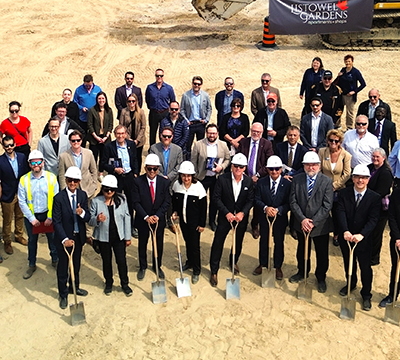How does big data factor into the sustainability equation? Key insights from the IBM Think conference
Recently, Michael Torrance, BMO’s Chief Sustainability Officer, participated in a panel at the IBM Think conference in Orlando, FL to discuss the role financial institutions play in sustainability, and how we partner with companies like IBM in creating a sustainable future for all.
Q. How can we think about the evolution of sustainability for big companies?
Sustainability is how companies navigate complex social expectations, which converge around environmental impact, social impact governance and how businesses maintain trust. With the enhancement of data and technology capabilities, there’s even more expectation about how companies must regulate and measure sustainability practices.
Q. What is the role of a financial institution in the sustainability space?
As sustainability efforts ramp up across industries, we’ll see the decarbonization of sectors like heavy industry, transportation power, generation agriculture, etc. As a financial institution, the biggest role we can play is to help facilitate that transition through finance and investment, and to provide advisory services.
To do this requires us to have insights of our clients and their emissions. We have to be able to give advice on decarbonization pathways, be aware of physical climate hazards such as floods and wildfire risk, and ensure these considerations are being integrated into core business strategies.
Q. How does big data factor into the sustainability equation?
Expectations from both regulators and investors about how companies measure, monitor and report on sustainability are increasing. To quantifiably measure climate-related impacts on the business, we need to employ big data approaches. Some of the ways BMO is already doing this are through:
- The acquisition of Radicle, a carbon credit origination and trading platform that helps clients track and monetize their decarbonization journey.
- Partnering with companies like IBM on Artificial Intelligence (AI) and natural language processing to be able to collect and track data against our goal to mobilize $300 billion in sustainable finance, which will help us better understand the impact of our lending and investments, and what our clients are doing.
- The development of BMO’s Climate Institute, our centre of expertise bridging policy, science, and finance to help shape the market for climate solutions.
As a Purpose-driven organization, we are committed to being our clients’ lead partner in the transition to a net zero world. In our own operations, BMO has been carbon-neutral since 2010. To learn more about sustainability at BMO, view the 2022 Sustainability Report and Climate Report.








